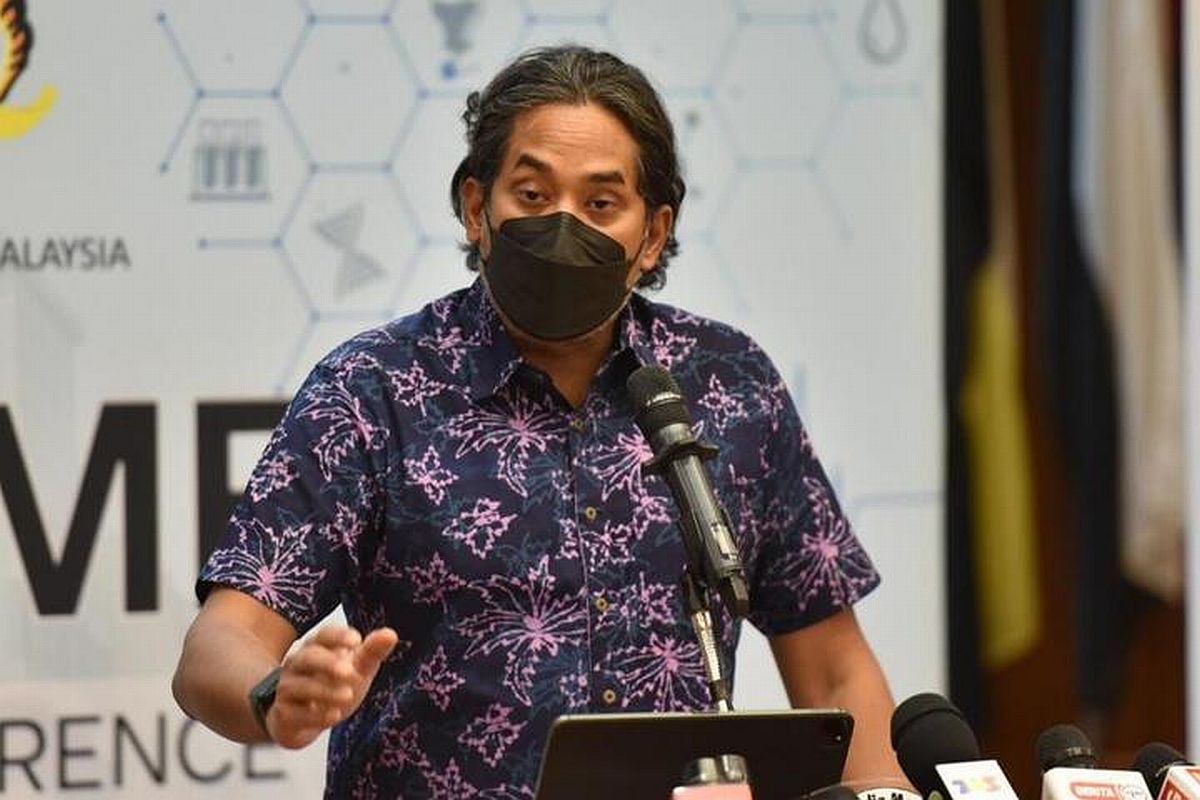KUALA LUMPUR, May 6 – The Ministry of Health (MOH) today reported a mysterious liver disease in a four-year-old boy in Sabah, with investigations ongoing to determine if this is a case of acute hepatitis of “unknown origin” reported internationally.
The four-year and 11-month-old Malaysian child with liver inflammation – who had symptoms of jaundice, fever, lack of appetite, nausea, and vomiting – sought treatment from a hospital in Sabah last March and subsequently received a liver transplant on March 30 at a hospital in the Klang Valley after his condition deteriorated.
He was discharged last April 21 in good health.
“Early investigations show that this child did not have a history of other diseases besides SARS-CoV-2 infection,” Health Minister Khairy Jamaluddin said in a statement, referring to the virus that causes Covid-19.
“Investigations are still ongoing to determine if this case fulfils the criteria for ‘acute hepatitis of unknown aetiology’.”
In a separate statement by Prof Lee Way Seah, Assoc Prof Ng Ruey Terng, Assoc Prof Gan Chin Seng, Prof Shireen Anne Nah, and Assoc Prof Yoong Boon Koon from the liver transplant team at Universiti Malaya Medical Centre (UMMC), as well as Dr Alvin Khoh from Gleneagles Hospital, Kota Kinabalu, they said the Sabah child tested negative in extensive investigations for other causes of acute hepatitis.
The UMMC liver transplant team and Dr Khoh also ruled out adenovirus as a cause of severe hepatitis in their paediatric patient after a thorough investigation. The previously healthy boy with severe liver failure had a recent Covid-19 infection, testing positive on an RT-PCR test with a cycle threshold value of 40 and antibody tests for the coronavirus.
The child aged below five years was also unvaccinated. Malaysia’s current eligibility for Covid-19 vaccination is five years and older.
He was referred to UMMC due to rapid deterioration and was admitted to the paediatric intensive care unit for potential emergency liver transplantation. However, the young boy deteriorated further with increased abnormal brain function (encephalopathy), heart dysfunction, and kidney failure.
“He required respirator support for his breathing, blood dialysis for kidney failure, and liver dialysis for liver failure (haemodialysis and plasmapheresis) together with intravenous nutritional support. When his condition did not improve despite maximum therapy to support his liver function, emergency liver transplant surgery was necessary. His mother was identified as the living liver donor,” they said, adding that the surgery was successful, with both patient and donor recovering after the procedure.
The UMMC team and the Gleneagles physician attributed a potential link of the severe acute hepatitis in their patient to complications from Covid-19 infection.
MOH has increased surveillance for acute hepatitis in all public health clinics and hospitals by using case definitions agreed upon by clinicians and public health experts. MOH is also developing case referral and management protocols for acute hepatitis of unknown origin.
“Besides that, medical practitioners in government and private clinics are requested to refer children aged one month to under 18 years, who have symptoms of jaundice and other acute hepatitis symptoms like loss of appetite, nausea, vomiting, fatigue, or dark-coloured urine, to hospital for further case management,” Khairy said.
Indonesia reported last Tuesday the deaths of three children in Jakarta from a severe type of acute hepatitis, suspected to be of unknown origin, pending confirmation that their infections were not caused by known hepatitis viruses A, B, C, D, and Rb.
Singapore reported a hospitalised case of acute hepatitis of unknown cause last April 29 in a 10-month-old baby, who had been infected with Covid-19 last December but did not test positive for the common viruses that cause hepatitis. The baby boy is said to be well.
The World Health Organization (WHO) said last April 23 that at least 169 cases of acute hepatitis of unknown origin among young children have been reported in a dozen countries in Europe and the United States as of April 21, including 114 cases in the United Kingdom.
Cases were aged one month to 16 years old, with about 10 per cent requiring liver transplantation. The common viruses that cause acute viral hepatitis (hepatitis viruses A, B, C, D and E) have not been detected in any of these cases.
Adenovirus has been detected in at least 74 cases, including 18 cases identified as F type 41, while Covid-19 was identified in 20 cases of those who were tested.
WHO noted that the UK first reported an unexpected significant increase in cases of severe acute hepatitis of unknown origin in young, generally previously healthy children.
“While adenovirus is currently one hypothesis as the underlying cause, it does not fully explain the severity of the clinical picture. Infection with adenovirus type 41, the implicated adenovirus type, has not previously been linked to such a clinical presentation,” WHO said.
The global health body noted that adenoviruses are common pathogens that mostly cause respiratory illness, but, depending on type, can cause other illnesses like gastroenteritis (inflammation of the stomach or intestines), conjunctivitis (pink eye), and cystitis (bladder infection).
“Adenovirus type 41 typically presents as diarrhoea, vomiting, and fever, often accompanied by respiratory symptoms. While there have been case reports of hepatitis in immunocompromised children with adenovirus infection, adenovirus type 41 is not known to be a cause of hepatitis in otherwise healthy children.”
WHO said further investigations are needed to determine the potential emergence of a novel adenovirus, as well as SARS-CoV-2 co-infection.
The United Nations body also discounted hypotheses related to side effects from Covid-19 vaccines, as the vast majority of affected children did not receive Covid-19 vaccination.
Update: This story was updated with a statement from UMMC’s liver transplant team and Gleneagles Hospital’s Dr Khoh.








